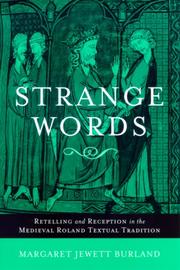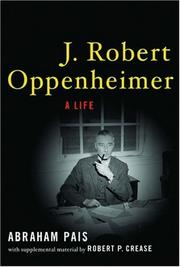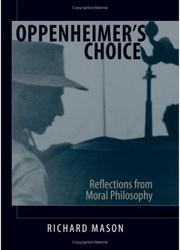| Listing 1 - 10 of 58 | << page >> |
Sort by
|
Book
ISBN: 9882371965 9882378560 9789882378568 9789882371965 Year: 2020 Publisher: [S.l.] : Baltimore, Md. : CHINESE UNIVERSITY PRESS, Project MUSE,
Abstract | Keywords | Export | Availability | Bookmark
 Loading...
Loading...Choose an application
- Reference Manager
- EndNote
- RefWorks (Direct export to RefWorks)
Literary historians --- Lee, Leo Ou-fan. --- China --- United States
Book
ISBN: 1469646285 9781469646282 0807890367 9780807890363 Year: 1961 Publisher: Chapel Hill, University of North Carolina Press
Abstract | Keywords | Export | Availability | Bookmark
 Loading...
Loading...Choose an application
- Reference Manager
- EndNote
- RefWorks (Direct export to RefWorks)
Chanson de Roland. --- Roland (Poem) --- Rolandslied --- Song of Roland --- Roland-ének --- Chanson de Roland ou de Roncevaux
Book
ISBN: 9789004274334 9004274332 9004274340 9789004274341 Year: 2016 Volume: 2 Publisher: Leiden, The Netherlands
Abstract | Keywords | Export | Availability | Bookmark
 Loading...
Loading...Choose an application
- Reference Manager
- EndNote
- RefWorks (Direct export to RefWorks)
In March 2011 Japan's Tōhoku region was devastated by a massive earthquake and tsunami. This was another blow to an area that has been dogged by hardships throughout Japanese history. Beginning in the middle of the 19th century, modern Japan, in its quest to form a nation-state, situated Tōhoku on the periphery and emphasised the region's alleged backwardness. By examining how Tōhoku has been perceived and constructed through this lens across the span of history, Hidemichi Kawanishi reveals a Japan that is far more diverse than traditionally thought.
J3420 --- J4190.20 --- J4390.20 --- Japan: Geography and local history -- Tōhoku region (Ōu) --- Japan: Sociology and anthropology -- local communities and culture -- Tōhoku region (Ōu) --- Japan: Economy and industry -- local economic history and geography -- Tōhoku region (Ōu) --- Regionalism --- Public opinion --- Opinion, Public --- Perception, Public --- Popular opinion --- Public perception --- Public perceptions --- Judgment --- Social psychology --- Attitude (Psychology) --- Focus groups --- Reputation --- Human geography --- Nationalism --- Interregionalism --- History. --- Tōhoku Region (Japan) --- Ōu Region (Japan) --- Public opinion.

ISBN: 9780268022037 0268022038 0268076278 0268075727 9780268075729 9780268076276 Year: 2007 Publisher: Notre Dame, Ind. University of Notre Dame Press
Abstract | Keywords | Export | Availability | Bookmark
 Loading...
Loading...Choose an application
- Reference Manager
- EndNote
- RefWorks (Direct export to RefWorks)
This is the first book to offer analyses of multiple medieval Roland texts in English, and Burland manages to make this study accessible and clear.
Chanson de Roland --- Criticism, Textual. --- Criticism, Textual --- Roland (Poem) --- Rolandslied --- Song of Roland --- Roland-ének --- Chanson de Roland ou de Roncevaux

ISBN: 0195166736 9780195166736 9780195347227 0195347226 1280655461 9781280655463 1435614143 0199883203 0197709354 9781435614147 Year: 2006 Publisher: Oxford ; New York : Oxford University Press,
Abstract | Keywords | Export | Availability | Bookmark
 Loading...
Loading...Choose an application
- Reference Manager
- EndNote
- RefWorks (Direct export to RefWorks)
An illuminating portrait of J. Robert Oppenheimer chronicles the story of one of the most charismatic and enigmatic figures of modern physics, from his precocious youth to his seminal role in developing the first atomic bomb, and beyond.
Oppenheimer, Julius Robert, --- Atomic bomb --- Physicists --- History. --- Oppenheimer, J. Robert --- United States --- History --- Biography --- Oppenheimer, J. Robert, --- Ou-pên-hai-mo, --- Oppenheimer, Robert,
Book
ISBN: 9789814656740 9789814656733 9789814656764 9789814656757 9814656755 9814656739 9814656747 Year: 2016 Publisher: Singapore Hackensack, N.J.
Abstract | Keywords | Export | Availability | Bookmark
 Loading...
Loading...Choose an application
- Reference Manager
- EndNote
- RefWorks (Direct export to RefWorks)
The book recovers and reconstructs what Oppenheimer said and wrote during the 1940s, 50s and 60s (i.e., his hope and vision) with the goal of identifying what might be of general philosophical interest today. It considers not only Oppenheimer's thought, but also his life using philosophical ideas developed by contemporary philosophers.In addition, to deepen and broaden the discussion and demonstrate the relevance of Oppenheimer's vision for the present, the author analyzes his views using contemporary international relations theory with a special emphasis on nuclear nonproliferation and disarmament. This examination reveals ways in which Oppenheimer's reasoning was prescient of current work being carried out to control, and possibly move beyond, the nuclear revolution.
Philosophy, Modern --- Nuclear nonproliferation --- Physicists --- Philosophie --- Non-prolifération nucléaire --- Physiciens --- International cooperation. --- Coopération internationale. --- Oppenheimer, J. Robert, --- Ou-pên-hai-mo, --- Oppenheimer, Robert, --- Oppenheimer, Julius Robert,
Book
ISBN: 9812700935 9789812700933 Year: 2006 Publisher: Hackensack, N.J. World Scientific
Abstract | Keywords | Export | Availability | Bookmark
 Loading...
Loading...Choose an application
- Reference Manager
- EndNote
- RefWorks (Direct export to RefWorks)
2004 marked the centennial of the birth of J Robert Oppenheimer, and brought historians and scholars, former students, nuclear physicists, and politicians together to celebrate this event. Oppenheimer's life and work became central to 20th century history as he spearheaded the development of the atomic bomb that ended World War II. This book provides a spectrum of interpretations of Oppenheimer's life and scientific achievements. It approaches the extraordinary scientist and teacher from many perspectives, chronicling the years from his boyhood through his role as director of the Los Alamos Na
Atomic bomb --- History. --- Oppenheimer, J. Robert, --- Ou-pên-hai-mo, --- Oppenheimer, Robert, --- Oppenheimer, Julius Robert, --- Manhattan Project (U.S.) --- United States.
Book
ISBN: 0708324444 129920113X 9780708324448 9781783162932 1783162937 9780708324424 0708324428 9780708324431 0708324436 9781299201132 Year: 2011 Publisher: Cardiff University of Wales Press
Abstract | Keywords | Export | Availability | Bookmark
 Loading...
Loading...Choose an application
- Reference Manager
- EndNote
- RefWorks (Direct export to RefWorks)
This volume consists of twelve essays from leading scholars and younger researchers on various aspects of the life, work and legacy of Robert Owen (1771-1858). A radical thinker and humanitarian employer Owen made a major contribution to nineteenth-century social movements including co-operatives, trade unions and workers' education. He was a pioneer of enlightened approaches to the education of children and an advocate of birth control. He established utopian communities in both the United Kingdom and the United States of America, and is often thought of as a leading early British socialist.
Educators --- Education --- Social reformers --- Reformers --- Educationalists --- Educationists --- Faculty (Education) --- Specialists --- History. --- Owen, Robert, --- Oʹen, Robert, --- Oven, Robert, --- Ouėn, Robert, --- Ou-wen, --- Ou-wen, Lo-po-tʻe, --- One of His Majesty's justices of peace for the county of Lanark, --- אואן, רוברט, --- אוען, ראבערט, --- Economic schools --- Owen, Robert
Book
ISBN: 2271129907 227107195X Year: 2019 Publisher: Paris : CNRS Éditions,
Abstract | Keywords | Export | Availability | Bookmark
 Loading...
Loading...Choose an application
- Reference Manager
- EndNote
- RefWorks (Direct export to RefWorks)
L’Encyclopédie des Lumières (1751-1772) a construit un ordre du savoir fondé sur la liaison entre sciences, arts et métiers. L’Encyclopédie méthodique de Panckoucke (1782-1832), présentée comme une suite a, pour sa part, éclaté le savoir en matières. Dans l’une, la réflexion sur un « tout » constitue le point de départ d’une position philosophique distribuée dans un ordre encyclopédique alors que, dans l’autre, ce sont les matières qui sont prioritaires, valorisant ainsi la spécialisation scientifique par la publication de dictionnaires séparés et ordonnés selon deux ordres analytique et sémantique. De nos jours, on entend dire que tout est lié dans la nature. Cette affirmation s’impose chez d’Alembert pour qui, dans la mosaïque des inventions scientifiques, les pierres qui ont contribué à paver le chemin de la vérité édifient l’histoire des sciences. Le lecteur trouvera dans cet ouvrage l’Encyclopédie de Diderot et d’Alembert exposée, d’une part, dans les transformations destinées à l’améliorer, contrefaçons comprises, et, d’autre part, dans son projet philosophique. En 1938, avec l’Encyclopedia, Otto Neurath lançait à son tour un projet d’unification des sciences à partir de l’esprit systématique de d’Alembert en agençant les matières à l’aide de « ponts systématiques ». C’est ce cheminement toujours d’actualité du savoir et des matières que Martine Groult nous propose d’explorer. Issu d’un Séminaire donné à l’Université de Chicago, ce livre interroge la postérité de l’Encyclopédie à travers les trois étapes que sont l’esprit philosophique, la pensée scientifique - avec l’éclatement de la métaphysique - et la théorie de la connaissance.
Encyclopedias and dictionaries --- Classification of sciences --- Knowledge, Theory of. --- History and criticism. --- History. --- Encyclopédie. --- Encyclopédie méthodique. --- Epistemology --- Theory of knowledge --- Philosophy --- Psychology --- Lexicography --- Knowledge, Classification of --- Sciences, Classification of --- Classification --- Methodology --- Science --- Encyclopédie méthodique, ou par ordre de matières --- Encyclopédie --- Encyclopédie, ou, Dictionnaire raisonné des sciences, des arts et des métiers --- Dictionnaire raisonné des sciences, des arts et des métiers --- Encyclopédie; ou Dictionnaire raisonné des sciences --- Dictionnaire des sciences, des arts et des métiers --- philosophie --- science --- siècle des Lumières --- encyclopédie

ISBN: 0791481638 1429411856 9781429411851 9780791481639 0791467813 9780791467817 Year: 2006 Publisher: Albany : State University of New York Press,
Abstract | Keywords | Export | Availability | Bookmark
 Loading...
Loading...Choose an application
- Reference Manager
- EndNote
- RefWorks (Direct export to RefWorks)
In 1942, J. Robert Oppenheimer accepted the leadership of the Manhattan Project at the Los Alamos Laboratory, which produced the first atomic bomb three years later. This book examines the ethics of Oppenheimer's choice to take that job and our judgment of his acceptance, leading to the larger question of the meaning of moral judgment itself. Through an analysis of Oppenheimer's choice, Richard Mason explores questions of responsibility, the justification for the pursuit of scientific curiosity, the purity of research, and many other topics of interest in scientific ethics. This unique look at one man's choice brings out the necessary step from personal detail to abstract reflection—it may be easy to praise or condemn Oppenheimer's choice, but less easy to justify our praise or condemnation. Oppenheimer's Choice establishes the possibility of this kind of moral philosophy—neither "applied" nor "practical" ethics, but instead a sustained concentration on a single choice, and what it means.
Ethics. --- Technology --- Deontology --- Ethics, Primitive --- Ethology --- Moral philosophy --- Morality --- Morals --- Philosophy, Moral --- Science, Moral --- Philosophy --- Values --- Technology and ethics --- Moral and ethical aspects. --- Oppenheimer, J. Robert, --- Ou-pên-hai-mo, --- Oppenheimer, Robert, --- Oppenheimer, Julius Robert,
| Listing 1 - 10 of 58 | << page >> |
Sort by
|

 Search
Search Feedback
Feedback About UniCat
About UniCat  Help
Help News
News